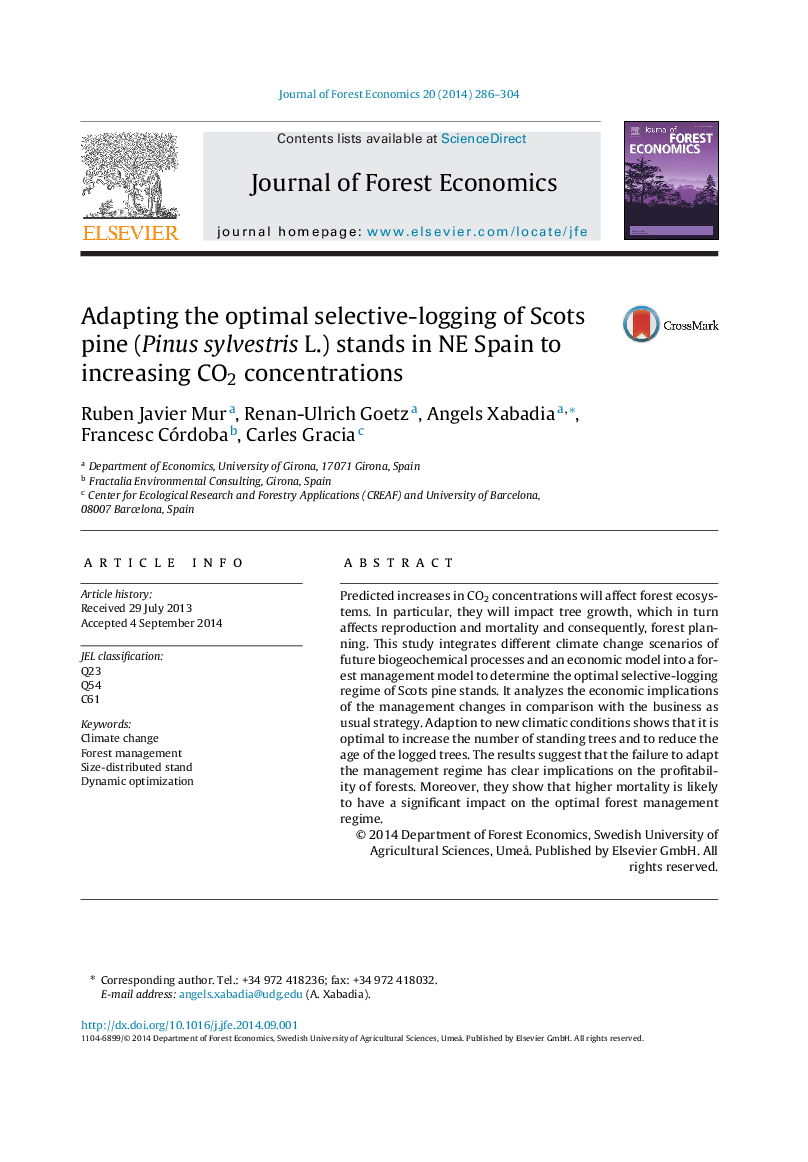| Article ID | Journal | Published Year | Pages | File Type |
|---|---|---|---|---|
| 10251396 | Journal of Forest Economics | 2014 | 19 Pages |
Abstract
Predicted increases in CO2 concentrations will affect forest ecosystems. In particular, they will impact tree growth, which in turn affects reproduction and mortality and consequently, forest planning. This study integrates different climate change scenarios of future biogeochemical processes and an economic model into a forest management model to determine the optimal selective-logging regime of Scots pine stands. It analyzes the economic implications of the management changes in comparison with the business as usual strategy. Adaption to new climatic conditions shows that it is optimal to increase the number of standing trees and to reduce the age of the logged trees. The results suggest that the failure to adapt the management regime has clear implications on the profitability of forests. Moreover, they show that higher mortality is likely to have a significant impact on the optimal forest management regime.
Related Topics
Life Sciences
Agricultural and Biological Sciences
Agronomy and Crop Science
Authors
Ruben Javier Mur, Renan-Ulrich Goetz, Angels Xabadia, Francesc Córdoba, Carles Gracia,
